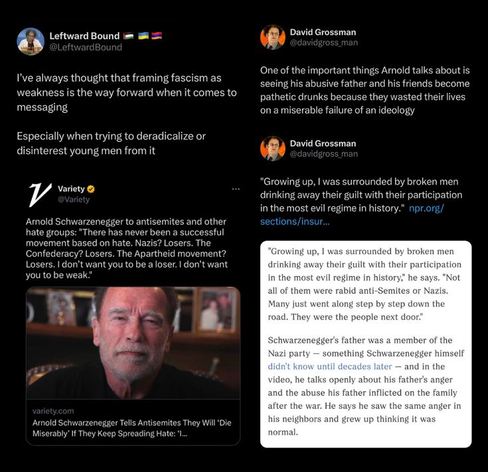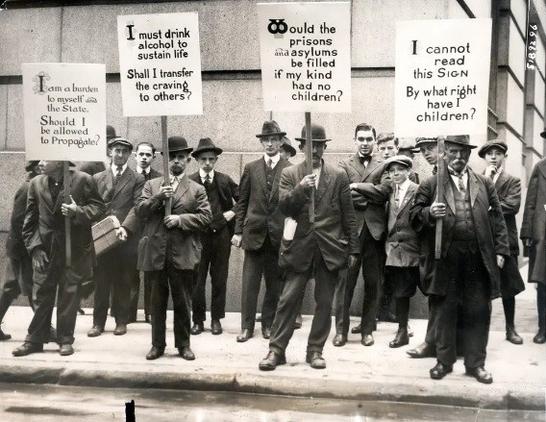DATE: March 26, 2025 at 02:18PM
SOURCE: PSYPOST.ORG
** Research quality varies widely from fantastic to small exploratory studies. Please check research methods when conclusions are very important to you. **
-------------------------------------------------
TITLE: Teens in poverty use social media more—but don’t suffer more because of it, study suggests
URL: https://www.psypost.org/teens-in-poverty-use-social-media-more-but-dont-suffer-more-because-of-it-study-suggests/
New research published in Computers in Human Behavior sheds light on how material deprivation influences teenagers’ access to and use of social media, and whether it changes the impact of social media on their emotional well-being. The study found that while teens from deprived households reported lower overall life satisfaction and spent slightly more time on social media, deprivation did not appear to worsen the link between social media use and life satisfaction. In other words, teens experiencing poverty did not seem to suffer more from time spent online compared to their more affluent peers.
The research was motivated by a growing concern over how social media affects adolescents’ well-being. Most studies in this area have treated teenagers as a single, uniform group, overlooking how individual differences—such as socioeconomic background—might shape these effects. Since social media is increasingly embedded in daily life, and teenagers are spending more time on platforms than ever before, it’s important to ask whether some young people are more vulnerable to its harms or more likely to benefit from its potential support. The authors of the study proposed that material deprivation, a measure of whether families can afford basic necessities, could be a key factor influencing how social media relates to adolescent life satisfaction.
“The discussion on the relationship between social media and adolescent wellbeing often overlooks the experiences of adolescents from deprived households. I wanted to address this gap by leveraging existing data to contribute empirical evidence to the debate,” said study author Sebastian Kurten, an assistant professor at Utrecht University.
The researchers analyzed ten years of data collected between 2009 and 2019 from the “Understanding Society” study, which tracks tens of thousands of households across the United Kingdom. This specific analysis included 23,155 adolescents aged 10 to 21, generating nearly 80,000 measurement points. These participants responded to surveys about their social media access and use, while their parents answered questions about the family’s financial situation.
The researchers used established indexes to determine whether families experienced material deprivation. For younger adolescents, this included things like not being able to afford school trips or warm winter coats. For older teens, it included items such as the inability to pay household bills or afford basic furniture.
The team used statistical modeling to sort participants into different deprivation categories and then looked at how these related to social media access, time spent on social media, and self-reported life satisfaction. Life satisfaction was measured annually through age-appropriate survey questions. For social media, they asked whether the adolescent had access to social media platforms and how many hours they typically spent using them on a school day.
The results showed that teens from deprived households were less likely to have access to social media, especially at younger ages. For example, by age 11, 76% of non-deprived adolescents had a social media account, compared to 69% of deprived teens. But by age 18, this gap disappeared—nearly all adolescents, regardless of background, had joined social media. Interestingly, among those with access, teens from deprived households reported spending slightly more time on social media than their wealthier peers.
Across the entire group, spending more time on social media was associated with slightly lower life satisfaction. However, this connection was modest and consistent regardless of socioeconomic background. Deprivation was strongly linked to lower life satisfaction overall, but it did not appear to make the effect of social media use any worse. Even when the researchers used sophisticated longitudinal modeling to track changes within individuals over time, they found no evidence that deprivation influenced how social media use affected life satisfaction in the long term.
The study also tested whether having access to social media—rather than the amount of time spent—was related to emotional well-being. Again, results were mixed. In one analysis, teens from deprived households who had social media access were slightly more likely to report lower life satisfaction, but this finding was weak and not consistent across all models. And in the long-term analysis, there was no sign that deprivation shaped how social media access influenced well-being.
“Poverty poses a significant threat to the wellbeing and development of adolescents,” Kurten told PsyPost. “While there is intense debate about the impact of social media on adolescent mental health, structural issues such as poverty and material deprivation are often overlooked. These factors create lasting disadvantages for adolescents and deserve more attention in public discourse.”
While the research provides some reassurance that social media does not appear to be especially harmful for adolescents growing up in poverty, the authors caution against drawing overly broad conclusions. One limitation is that the study relied on self-reported data about social media use, which may be prone to error. Teenagers may overestimate or underestimate how much time they spend online, and the survey did not distinguish between different types of social media activity.
“We used representative panel data from the UK collected several years ago, but at the time, social media use was assessed with a simple 1-to-5 scale rather than more nuanced measures,” Kurten noted. “Fortunately, research has since advanced, and newer studies use more sophisticated assessments. However, the general trends observed in our data align with findings from studies that employ these improved measures.”
Despite these limitations, the researchers argue that their findings challenge some common assumptions. While it’s often suggested that social media use might be especially harmful for deprived youth, this study did not support that idea. Instead, the authors suggest that material deprivation itself is a more consistent predictor of lower well-being than social media use. This points to the need for policies that address poverty directly, rather than focusing narrowly on social media as a cause of distress.
“My long-term goal is to provide more comprehensive evidence on how structural adversities, such as material deprivation, affect adolescent wellbeing,” Kurten said. “I want to make sure that their perspectives also get heard in the public debate.”
“I would be glad to see the public debate shift from focusing solely on what social media does to children to addressing the far greater impact of poverty. My research highlights that material deprivation is a structural issue with serious consequences for adolescent wellbeing. We need to intensify our efforts to lift children out of poverty and ensure they have the resources to thrive.”
The study, “Deprivation’s role in adolescent social media use and its links to life satisfaction,” was authored by Sebastian Kurten, Sakshi Ghai, Candice Odgers, Rogier A. Kievit, and Amy Orben.
URL: https://www.psypost.org/teens-in-poverty-use-social-media-more-but-dont-suffer-more-because-of-it-study-suggests/
-------------------------------------------------
Private, vetted email list for mental health professionals: https://www.clinicians-exchange.org
Unofficial Psychology Today Xitter to toot feed at Psych Today Unofficial Bot @PTUnofficialBot
NYU Information for Practice puts out 400-500 good quality health-related research posts per week but its too much for many people, so that bot is limited to just subscribers. You can read it or subscribe at @PsychResearchBot
Since 1991 The National Psychologist has focused on keeping practicing psychologists current with news, information and items of interest. Check them out for more free articles, resources, and subscription information: https://www.nationalpsychologist.com
EMAIL DAILY DIGEST OF RSS FEEDS -- SUBSCRIBE: http://subscribe-article-digests.clinicians-exchange.org
READ ONLINE: http://read-the-rss-mega-archive.clinicians-exchange.org
It's primitive... but it works... mostly...
-------------------------------------------------
#psychology #counseling #socialwork #psychotherapy @psychotherapist @psychotherapists @psychology @socialpsych @socialwork @psychiatry #mentalhealth #psychiatry #healthcare #depression #psychotherapist
EXTREMELY URGENT!! octo is now in debt from not meeting the last 2 months goals. she's barely hanging onto life, she can't afford to eat & is battling suicidal ideation! please help!
you can get handmade art, a short story collection or an email with file storage space for donating to her here:




















